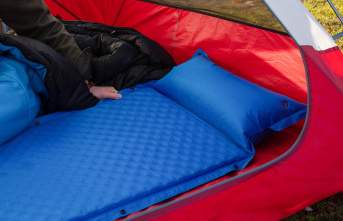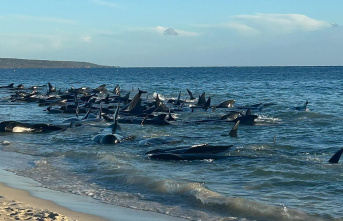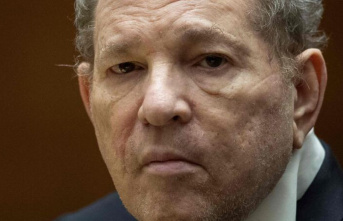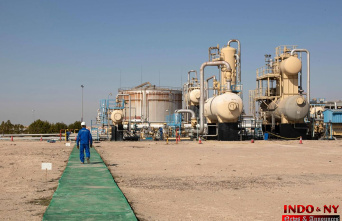In the red: Sunac, one of China's leading real estate developers, announced on Thursday that it was in default, less than six months after the national giant Evergrande.
Real estate and construction, which account for more than a quarter of China's GDP, have long served as the engine of the economy and played a key role in the recovery from the first epidemic wave in 2020.
But to reduce the indebtedness of the sector, Beijing has tightened the conditions of access to credit for property developers.
As a result, many groups have found themselves short of cash since last year, including sector number one Evergrande.
The poor financial health of this mastodon has indirectly penalized its competitors, with buyers increasingly hesitant to invest in stone.
The current health situation, which leads to travel restrictions, even confinements, and weighs on the purchasing power of the Chinese, is also increasing the pressure on the sector.
Sunac had to repay last month 29.5 million dollars (28 million euros) on loan interest but could not meet the deadline. The group had a 30-day grace period that ended on Wednesday.
At that time, Sunac had "not repaid" the sum, the group said Thursday in a statement sent to the Hong Kong Stock Exchange, where it is listed.
"Deal of the Century"
Real estate is undergoing “radical changes” which have led Sunac to a “significant drop” in sales since the second quarter of 2021, and access to new financing “increasingly difficult”, admitted the Tianjin-based group ( north).
Sunac is the biggest Chinese promoter to default this year.
Three more grace periods will expire for him at the end of the month. But the group has already warned that it could not honor them either.
Sunac says it wants to resolve “within a reasonable time” its financing problems with its creditors.
In a generally sluggish real estate market, the group reported a drop of around 65% in sales over one year in March and April.
In 2019, at its peak, Sunac claimed over 50,000 employees.
Two years earlier, the firm had acquired hotels and tourist sites from the conglomerate Wanda, a compatriot then pinned down by Beijing for its frenzy of purchases abroad and its indebtedness.
For this transaction, presented by the press at the time as the "contract of the century", Sunac had spent 63 billion yuan (8.8 billion euros at the current rate).
Evergrande
These all-out investments are reminiscent of those of Evergrande, which, in addition to real estate, saw growth potential in tourism, digital technology and even electric cars.
But the group found itself strangled last year by an abysmal debt of around 260 billion euros.
And he had been unable to honor refunds, struggling elsewhere to deliver apartments already paid for by buyers.
In December 2021, the rating agency Fitch declared the group in default.
To get its head above water, Evergrande has been trying in recent months to sell assets and reduce its stakes in other companies.
The group thus sold in March for 3.6 billion yuan (510 million euros) a vast real estate project in Hangzhou (eastern China).
Threatened by sluggish growth and health restrictions that are weighing down its economy, the Chinese authorities are rounding off the angles with a sector that has been under pressure for months.
Beijing thus brought its support to real estate at the end of April and called for a healthy development of the sector, at a time when several cities are lifting their foot on certain regulatory constraints.
1












